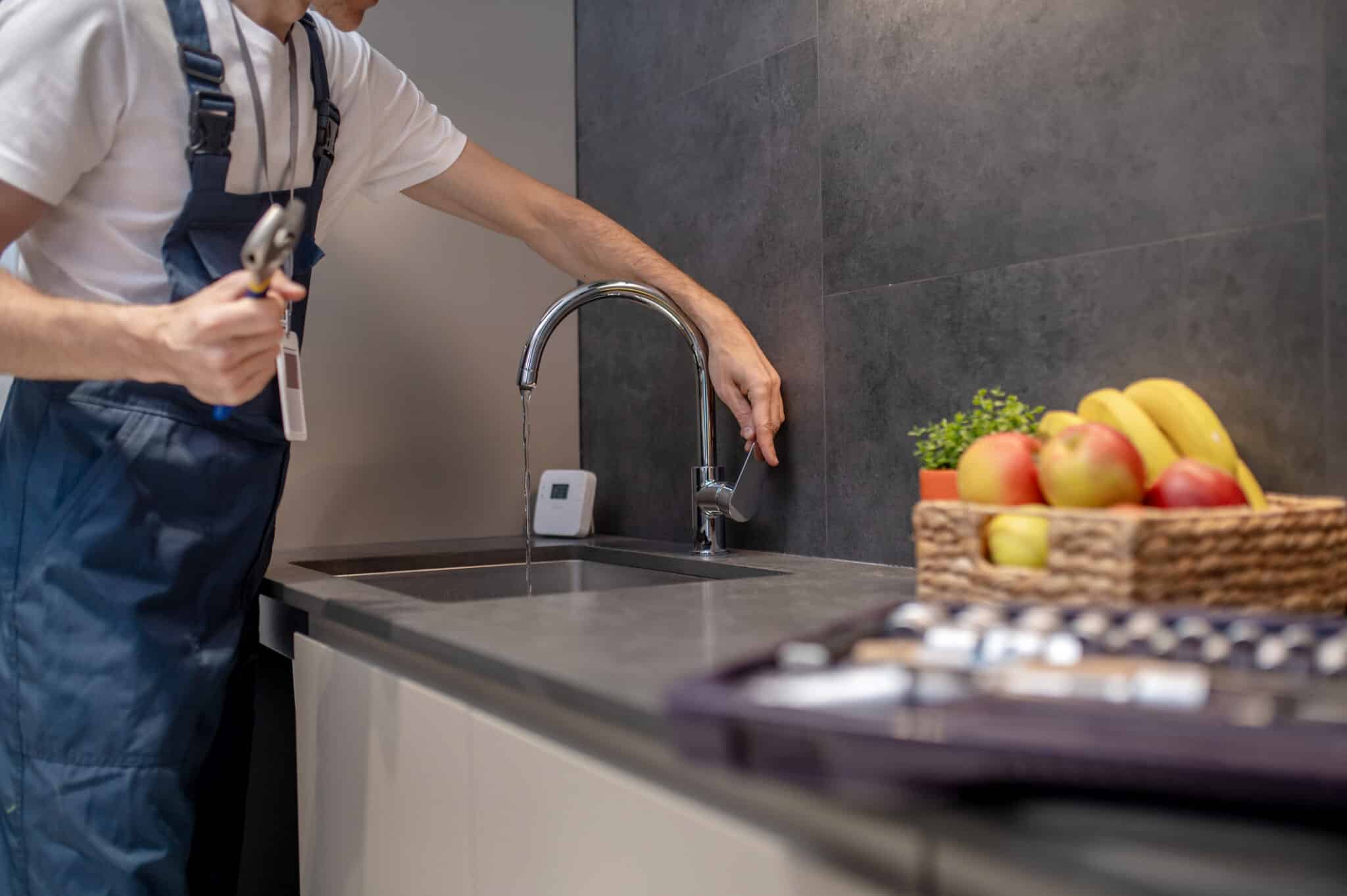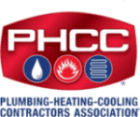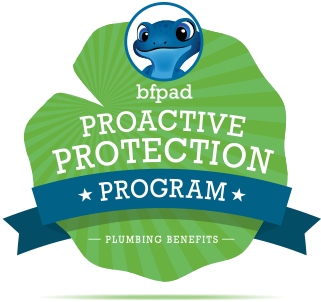
The Role of Plumbing in Health and Safety
Plumbing is crucial for health and safety, providing clean water, supporting hygiene, and managing waste. It prevents disease spread and protects communities from health risks. Without proper plumbing, our well-being and daily lives would be at serious risk.
How Proper Plumbing Prevents Waterborne Diseases
Plumbing plays a vital role in preventing waterborne diseases by keeping clean water separate from waste. A properly maintained plumbing system prevents contaminants like bacteria and viruses from entering the water supply. These harmful pathogens can cause illnesses such as cholera and dysentery. By ensuring the plumbing is in good condition, you can protect your household from these health risks.
Regular inspections by professional plumbers help detect issues early. Fixing problems like leaks or improper connections keeps your water safe and clean. Timely repairs are crucial to avoiding contamination and reducing the risk of waterborne diseases in your home.
Backflow prevention, sealed pipes, and filtration systems are essential for maintaining water quality. These features stop harmful pathogens from entering the water supply. Without proper maintenance, faulty plumbing can lead to contamination, increasing the chances of exposure to dangerous bacteria and viruses.
Investing in professional plumbing services helps protect your family’s health. Quality plumbing ensures clean water and prevents the spread of waterborne diseases. Regular maintenance is key to keeping your home safe from potential health hazards.

The Role of Plumbing in Maintaining Hygiene
Maintaining hygiene standards is essential for public health. Access to clean, running water through well-maintained systems enables us to perform everyday tasks like handwashing, bathing, and cleaning our homes. These simple actions are crucial in preventing the spread of germs and infections. Without reliable infrastructure, maintaining basic hygiene would be nearly impossible, leading to increased health risks.
Importance of Plumbing Fixtures
Fixtures like sinks, showers, and toilets are designed to manage water flow and ensure proper waste disposal. These systems help keep living spaces free from harmful bacteria and pathogens. Effective systems support personal hygiene while preventing cross-contamination by directing wastewater away from homes, and safeguarding the environment from potential health hazards.
Need for Regular Maintenance
Regular maintenance of these systems is critical. Issues such as leaks, blockages, or broken fixtures can compromise water quality and hygiene. Professional plumbers play a crucial role in this process. They conduct inspections, identify potential problems, and perform necessary repairs to keep systems functioning properly. Their expertise ensures that everything meets safety standards and continues to protect public health.
Investing in Quality Services
Investing in quality services is more than just routine upkeep; it’s a proactive measure to maintain a sanitary and safe environment. Proper systems help prevent illnesses, support cleanliness, and ensure that our homes remain healthy places to live.
The role of plumbing in maintaining hygiene cannot be overstated. By prioritizing effective systems and professional maintenance, we safeguard our health and well-being.
Plumbing’s Contribution to Safe Drinking Water
Effective systems are essential for delivering safe drinking water directly to homes. They ensure that clean water is always available and protected from contamination. Here’s how plumbing plays a crucial role in maintaining water safety:
Role in Water Safety
Effective systems keep clean water separate from wastewater and pollutants. Sealed pipes, backflow preventers, and filters work together to prevent harmful substances, such as bacteria, chemicals, and rust, from entering the water supply. This separation is vital for safeguarding public health.
Health Risks of Poor Systems
Faulty infrastructure can introduce contaminants into drinking water, leading to serious health issues. Conditions such as lead poisoning and stomach infections can arise from compromised water quality. Therefore, keeping these systems in good condition is crucial for health.
Importance of Regular Maintenance
Regular inspections by professional plumbers help identify issues like corroded pipes, leaks, or blockages that can compromise water quality. Timely repairs ensure that the water remains safe to drink. Proactive maintenance minimizes risks associated with contaminated water.
Benefits of Professional Services
Investing in skilled professionals helps maintain the integrity of these systems. Their expertise ensures that systems meet safety standards and regulations. Regular maintenance prevents minor problems from escalating into major health risks.
Proper infrastructure is not just about convenience; it’s a critical safeguard for your health. Maintaining these systems ensures that your drinking water is clean, safe, and reliable for you and your family.
The Impact of Faulty Plumbing on Health
Faulty plumbing can pose serious health risks that often remain hidden until they worsen. First, consider leaks. These can create damp environments that foster mold growth. Mold thrives in moist areas and can trigger respiratory issues, allergies, and skin irritations. Ignoring leaks can lead to extensive mold infestations, jeopardizing your family’s health.
Next, think about backflow. This occurs when contaminated water flows back into your home’s water supply. Exposure to harmful bacteria and chemicals through backflow can lead to severe illnesses. It’s crucial to ensure that your plumbing system is functioning properly to prevent such dangerous scenarios.
Moreover, poor plumbing can contribute to structural damage in your home. Over time, leaks and water damage can weaken your property’s foundation, leading to costly repairs and potential hazards. This structural instability can create an unsafe living environment, increasing health risks.
To mitigate these dangers, regular inspections by qualified plumbers are essential. These professionals can spot issues early and resolve them before they escalate. By prioritizing plumbing maintenance, you protect your home and your health. Don’t wait for a minor leak to become a major problem—schedule an inspection today.
Addressing faulty plumbing is not just about home maintenance; it’s about safeguarding your family’s well-being. A proactive approach can prevent health risks and ensure a safe, healthy living environment.
Plumbing and Waste Management
Understanding plumbing and waste management is essential for maintaining health and safety in our communities. Here’s a step-by-step look at how effective systems contribute to a cleaner environment:
- Wastewater Removal: Effective plumbing systems are designed to safely transport wastewater and sewage away from homes and businesses. This removal process prevents the buildup of harmful substances that could pose health risks.
- Disease Prevention: By managing wastewater efficiently, these systems play a crucial role in preventing the spread of diseases. Contaminated sewage can lead to waterborne illnesses, threatening public health.
- Protecting Water Sources: Proper waste management safeguards our water sources from pollution. When sewage is not disposed of correctly, it can contaminate rivers, lakes, and groundwater, endangering both human health and local ecosystems.
- Maintaining Sanitary Conditions: A well-functioning system ensures a clean and sanitary environment. Regular maintenance helps identify potential issues, such as leaks or clogs before they escalate into major problems.
- Community Responsibility: Finally, investing in reliable waste management is a shared community responsibility. Educating others about the importance of this issue fosters a culture of health and safety.
By prioritizing effective systems, we protect our health and ensure a safe, clean environment for all.
Plumbing Codes and Regulations for Health and Safety
To safeguard public health, plumbing codes and regulations are strictly enforced. These codes establish standards for the design, installation, and maintenance of systems, ensuring that they meet essential safety requirements. Adherence to these regulations is crucial in preventing health hazards associated with faulty infrastructure.
- Importance of Compliance: Complying with plumbing codes helps prevent issues such as leaks, backflow, and contamination of drinking water. These hazards can lead to serious health risks, including waterborne diseases. Therefore, it is vital for systems to adhere to established standards to ensure a safe water supply and waste disposal.
- Role of Professional Plumbers: Professional plumbers must be knowledgeable about these standards to provide safe and effective service. Their expertise ensures that installations and repairs meet regulatory requirements, reducing the risk of failures. By following codes and regulations, these professionals contribute to the overall safety and well-being of communities.
- Community Protection: Moreover, compliance with plumbing codes protects communities from potential plumbing-related health risks. Regular inspections and adherence to guidelines not only enhance safety but also promote public confidence in these systems. This confidence is essential for maintaining a healthy environment.
Plumbing codes and regulations are critical for health and safety. By prioritizing compliance, professionals can help safeguard public health and protect communities from related hazards.

The Role of Professional Plumbers in Health and Safety
Professional plumbers play an essential role in maintaining the health and safety of our homes and businesses. Their expertise ensures that systems are installed correctly, meet regulatory standards, and function efficiently. By adhering to established guidelines, they help prevent potential hazards that could compromise public health.
- Importance of Regular Inspections: Regular inspections and maintenance performed by skilled professionals can prevent minor issues from escalating into major health risks. For example, unnoticed leaks can lead to mold growth, while faulty fixtures can introduce contaminants into drinking water. By addressing problems promptly, these experts help maintain the integrity of water and waste management systems.
- Safeguarding Water Quality Trained professionals are equipped to identify and resolve issues that could affect water quality. Their interventions ensure that safe drinking water is delivered to households and that wastewater is properly disposed of. This work is critical in protecting communities from waterborne diseases and other health risks.
- Enhancing Public Confidence Moreover, the presence of qualified professionals enhances public confidence in systems. Knowing that experts are maintaining and inspecting these infrastructures fosters trust in the safety of our water supply and waste management practices.
Professional plumbers are essential for health and safety, ensuring systems operate effectively and addressing issues to protect our homes and businesses.
Seasonal Plumbing Tips for October
October is a critical time to prepare your plumbing for the colder months ahead, especially in Highland Park, TX. As temperatures begin to drop, taking proactive steps can prevent winter-related issues that compromise health and safety. Here are some essential tips to ensure your system is ready for the change in seasons.
Insulate Your Pipes
Start by insulating pipes in unheated areas, such as basements and attics. Proper insulation helps prevent frozen pipes, which can burst and lead to significant water damage and mold growth. Use foam pipe insulation or heat tape to wrap vulnerable pipes. This simple step can save you from costly repairs down the line.
Check for Leaks
Next, conduct a thorough check for leaks throughout your system. Look for water stains on walls and ceilings, as well as damp spots around pipes and fixtures. Even minor leaks can worsen in colder weather, leading to freezing and potential damage. Fixing these issues now will help maintain the integrity of your setup.
Schedule a Professional Inspection
Scheduling a professional inspection in October is a wise investment. Experienced technicians can identify vulnerabilities in your system and recommend necessary repairs. They can also provide advice on additional measures you can take to protect your infrastructure during winter. Having a comprehensive inspection ensures that everything is ready to handle seasonal changes.
Prepare Outdoor Plumbing
Don’t forget to prepare your outdoor fixtures for winter. Drain hoses and shut off exterior faucets to prevent freezing. Consider using faucet covers to provide extra protection against the cold. These simple tasks help safeguard your home’s systems and prevent water-related issues.
Monitor Your Water Heater
In colder months, your water heater works harder to maintain temperature. Check the temperature setting on your water heater and adjust it to around 120°F. This setting is hot enough for most uses while being energy-efficient. Additionally, inspect the tank for any signs of corrosion or leaks. Regular maintenance of your heater helps ensure reliable hot water throughout the winter.
Keep an Eye on Your Sump Pump
If your home has a sump pump, ensure it functions correctly. Test it by pouring water into the pit and observing whether it activates. A functioning sump pump is vital for preventing flooding during heavy rains, especially when temperatures drop. If it shows signs of wear, consider having it serviced or replaced.
Educate Your Family
Finally, educate your family about the importance of maintenance. Teach them to report any unusual sounds, leaks, or changes in water flow. Early detection of issues can make a significant difference in preventing costly repairs.
By taking proactive steps in October, you effectively safeguard your home and family from potential issues during the colder months. Proper preparation ensures a safe and efficient system throughout winter, providing you with peace of mind. Don’t wait for problems to arise—contact bluefrog Plumbing + Drain of North Dallas in Highland Park, TX, today. Our experienced team is dedicated to helping you maintain a healthy infrastructure. We understand the unique challenges of the season and are here to ensure your plumbing system is reliable. Trust us to keep your home safe and comfortable all winter long.
Schedule your inspection with us today to ensure your home is ready for winter. Act now to prevent potential problems and keep your home safe all season long!
FAQS about Plumbing
-
What health issues can result from poor plumbing?
Poor plumbing can lead to a variety of health issues. Stagnant water can create an ideal environment for mold growth, leading to respiratory problems like asthma. Contaminated water from leaky pipes can harbor harmful bacteria such as E. coli, causing gastrointestinal illnesses. Inadequate sewage systems can lead to wastewater exposure, increasing the risk of infections. Overall, poor plumbing poses significant risks to both physical and mental health.
-
How does plumbing prevent waterborne diseases?
Plumbing systems are designed to safely deliver clean water and remove wastewater, which is essential for preventing waterborne diseases. Well-maintained pipes ensure that drinking water is not contaminated by bacteria or chemicals. Proper sewage systems prevent the exposure of harmful pathogens found in untreated waste. These systems, combined with filtration and treatment methods, act as barriers to diseases like cholera and dysentery.
-
What are the signs of plumbing-related health hazards in a home?
Several signs can indicate plumbing-related health hazards in a home. Persistent foul odors could signal a sewage leak, which can release harmful gases. Slow or clogged drains may lead to stagnant water, encouraging mold growth. Discolored or foul-tasting water might indicate contamination in the pipes. If family members experience unexplained illnesses, such as skin rashes or respiratory problems, plumbing should be inspected for potential issues.
-
Why are plumbing codes essential for safety?
Plumbing codes are essential because they establish safety standards for installing and maintaining plumbing systems. These regulations ensure that clean water is delivered without contamination and wastewater is disposed of correctly. Following plumbing codes also helps prevent dangerous situations like gas leaks, water pressure failures, or flooding. By adhering to these standards, homes and buildings are safer and healthier environments.
-
How often should plumbing systems be inspected?
Plumbing systems should generally be inspected once a year to ensure they are functioning properly. Regular inspections help detect issues like leaks, corrosion, or blockages before they become serious health or safety hazards. If you live in an older home or notice signs of plumbing problems, more frequent inspections might be necessary. Routine maintenance also extends the life of plumbing systems and reduces the risk of costly repairs.
This highlights the critical role plumbing plays in protecting health and safety. Ensuring that plumbing systems are maintained and functioning correctly is vital for a healthy living environment. For expert assistance, trust the professionals at bluefrog Plumbing + Drain of North Dallas to keep your plumbing in top condition.



















